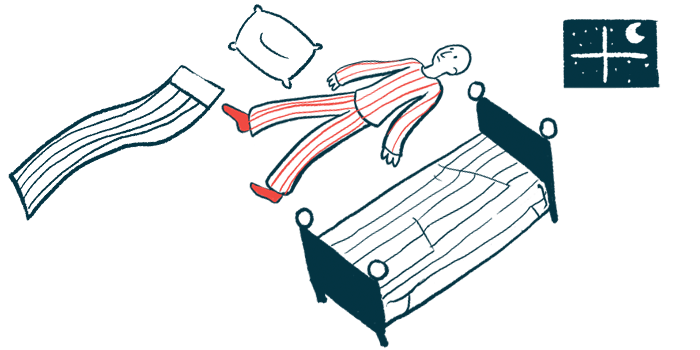Aripiprazole at Low Dose Eases Parkinson’s Psychosis, If Tolerable
Written by |

A low daily dose of aripiprazole, an antipsychotic therapy, significantly eased hallucinations and delusions in people with Parkinson’s disease and psychosis treated in a small, open-label study.
Because one-third of the trial’s participants discontinued treatment due to a worsening of disease symptoms, patients using aripiprazole should be monitored closely for tolerability, especially those older than 80, the scientists recommended.
The study, “Safety and tolerability of aripiprazole in patients with psychosis associated with Parkinson’s disease—Results of a multicenter open trial,” was published in the journal Neuropsychopharmacology Reports.
People with Parkinson’s disease often experience psychosis — sensing things that are not real (hallucinations), and expressing beliefs that are not based in reality, referred to as delusions.
Antipsychotics are a type of medication used to treat psychosis. Still, their use in Parkinson’s can be complicated because they modulate the activity of dopamine, the nerve signaling molecule that is abnormally low in patients. As a result, some antipsychotics can worsen Parkinson’s symptoms.
Nuplazid, an oral medicine, was approved by the U.S. Food and Drug Administration (FDA) to treat Parkinson’s psychosis, however the medicine has not been approved in Japan.
Aripiprazole (brand names include Abilify and Aristada) is an antipsychotic that blocks receptors associated with another signaling molecule called serotonin. It only partly interacts with the dopamine system, reducing the likelihood of symptom worsening. Although it has been used off-label to treat psychosis in Parkinson’s patients, few systematic studies have evaluated its effectiveness against hallucinations and/or delusions in this patient population.
A total of 24 Parkinson’s patients with psychosis were enrolled in an open-label study, conducted by researchers based at Okayama Kyokuto Hospital in Japan, of aripiprazole.
All enrolled experienced hallucinations — 20 had visual hallucinations, two both visual and auditory (hearing) hallucinations, one had auditory hallucinations only, and one experienced auditory hallucinations and delusions. The majority (13 of the 24) were men; patients’ mean age when dosing began was 72.4, and their mean disease duration was 9.4 years.
Aripiprazole was prescribed at a low dose of 3 mg/day (standard dose, 5–15 mg/day) before bedtime for the first two weeks, then adjusted according to efficacy or side effects. Participants remained on their other Parkinson’s medications throughout the study. Various standard assessment tests, applied before, during and after 12 weeks (about three months) of treatment, measured the medication’s impact.
Analysis revealed that aripiprazole lessened hallucinations and delusions in 15 (62.5%) patients without worsening Parkinson’s symptoms. The remaining nine patients left the study, eight (33.3%) due to worsening motor symptoms and one because of worsening hallucinations.
A comparison between those who did and did not complete the study found no differences before treatment regarding age at disease onset, disease duration and severity, medication use, or several other measures of Parkinson’s symptoms.
All three patients older than age 80, however, discontinued: two after experiencing motor decline and one for worse hallucinations. “Patients aged 80 years [and older] may thus need closer monitoring to detect worsening PD symptoms when using this drug,” the researchers wrote.
A significant improvement in the brief psychiatric rating scale (BPRS) scores — a measure of psychiatric symptoms, such as hallucinations — was reported in the 15 people who completed the study. Their clinical global impression-severity (CGI-S) scale scores were also significantly lower; this scale measures symptom severity in people with mental disorders.
Aripiprazole also improved scores of the unified Parkinson’s disease rating scale (UPDRS) part 1, which assessed behavior and mood, and part 3 for motor symptoms. All other examination tests showed no difference with treatment, including Hoehn & Yahr staging for disease severity and UPDRS part 2 scores for activities of daily living.
After 12 weeks of dosing, nine of these patients had a score of 1, or very much improved, on the clinical global impression-improvement scale (CGI-I), which measured treatment response. The remaining six individuals scored 2, or much improved.
Adverse effects were reported by nine participants, including two with insomnia and one case each of worsening bradykinesia (slowness of movement), hypersalivation, binge eating, weight gain, dry eye, and aspiration pneumonia. Lowering the aripiprazole dose given alleviated insomnia in one individual.
“Low-dose use of aripiprazole to treat [Parkinson’s disease] patients with hallucinations and/or delusions may worsen motor symptoms in one-third of the patients,” the investigators concluded.
“However, for [Parkinson’s disease] patients who can tolerate aripiprazole, this drug may be useful for treatment of their psychiatric symptoms.”



